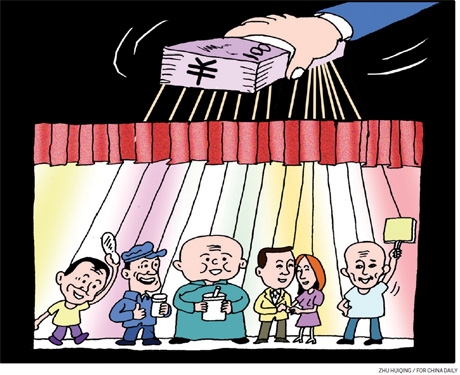 |
In China, 40 percent of advertisements geared toward youths feature at least one celebrity. Personalities, such as former NBA basketball star Yao Ming, actor Jackie Chan and Olympic gold medalist Liu Xiang, are frequently featured in advertisements for a wide range of products and services as diverse as soft drinks, credit cards and life insurance.
Some of the reasons behind such frequent use of celebrities in branding in China can be found when exploring traditional Chinese cultural values, such as collectivism and risk aversion.
According to my research, younger generations across China, while still possessing these traditional values, also value success, status and elitism. Added together, these traditional and modern values represent the perception among many Chinese people of the typical celebrity, no matter how he or she achieved fame.
For example, Yao is perceived as much more than just a successful athlete. Yao's image could be described as powerful, a winner and pioneering. Such an image closely matches the brand image sought by a multitude of products and services.
China remains an environment where product and service quality and reliability are often in doubt. This suspicion, coupled with a natural tendency to avoid risk, also explains why celebrities are often used to promote brands. Celebrity endorsement acts as a form of reassurance; the public feels safe seeing a famous person, and, in effect, has risked his or her reputation by supporting a particular brand.
It is important to note that building awareness for a brand does not necessarily lead to the desired image. And even if this is achieved, there is often a huge gap between desire and following through and purchasing a product.
Most research studies the phenomenon of celebrities in advertising with the assumption that the celebrities' image will eventually transfer to the brands' image. Such an image transfer is thought to be most effective when credibility, attractiveness and image combine to form one message. While this research stands up to initial scrutiny, it lacks intellectual rigor when considering any transfer of values in various cultures.
The Chinese culture, which values relationships or guanxi, has not been the subject of much research in this area.
To Chinese consumers, famous people represent more than success and status; they reflect the values and ideals of a particular culture.